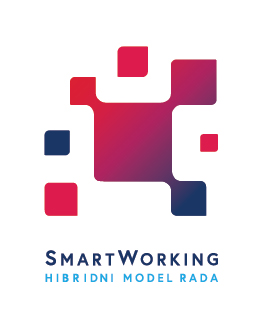


On 3 March 2023, the National and University Library in Zagreb hosted a workshop entitled "Introduction of a Smart Working model in state bodies under the National Recovery and Resilience Plan 2021-2026", organised by the Ministry of Justice and Public Administration.
The goal of this investment is to introduce flexible working arrangements for civil servants employed in government bodies in accordance with Directive (EU) 2019/1158 of the European Parliament and of the Council of 20 June 2019 on work-life balance for parents and carers. Smart working is a combination of working in an office and teleworking, which means that a civil servant has the opportunity to perform part of the work periodically or temporarily from home or from another location other than the premises of the state body.
The introduction of smart working contributes to the digitalisation and improvement of the quality of public administration, the well-being of civil servants, the reduction of environmental footprint and material costs, the strengthening of competences and a better balance of work and private life. Under the National Recovery and Resilience Plan 2021-2026, the Government of the Republic of Croatia plans to meet the target of 20% of civil servants involved in Smart Working and 60% of civil servants trained for the application of Smart Working by the end of 2023.
It was emphasized at the workshop that the smart working model is not a right of the civil servant regardless of the needs of the work process, but a possibility that is realized taking into account the business needs of the state body. This working model has been introduced by most European countries because it allows greater flexibility and easier work organization in case of emergency events, reduction of costs, less sick leave, a wider range of candidates for a particular job, and has many other positive effects.
"In the National Recovery and Resilience Plan, the Ministry of Justice and Public Administration put emphasis on reforms and investments for better human resources management, improvement of the employment system, introduction of a new, fairer system of performance appraisal in state and public services, reform of the wage system and introduction of new, flexible ways of working", said State Secretary Salapić.
The workshop was attended by secretaries-general and representatives of internal organisational units for human resources management from 38 state bodies.

